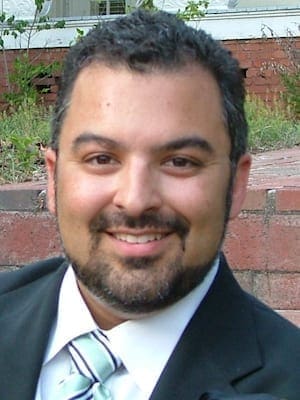Editor’s note: This article has been revised to remove a statement about William Sloane Coffin being kin to Harry Emerson Fosdick. They were not related.
Most ministers I know pray for courage daily.
Ministry is a sacrificial act that requires risk, reconciliation and intuition. It is a craft that pastors shape over time, a vocation forged in the throes of experience and ever-evolving knowledge.
So goes the prayer in “God of Grace and God of Glory” in which the author, Harry Emerson Fosdick, implores the Lord, “Grant us wisdom, grant us courage.”
Penned soon after World War I, “God of Grace and God of Glory” was Fosdick’s confession of having supported the “war to end all wars,” only to realize that violence only begot more violence.
Like other progressives of his time, Fosdick, pastor of the historic Riverside Church in Manhattan, repented of his ideals and wrote this hymn in which he asked God to “cure thy children’s warring madness.”
Fosdick’s beloved hymn captures the spirit of historic progressivism in its lofty lilt, set to the music of John Hughes, while birthing notions of nonviolence that shaped much of the progressive church into recent days.
In fact, after Fosdick, Riverside Church became a beacon for peace and nonviolence.
One of the church’s pastors, William Sloane Coffin, gained notoriety for preaching against the Vietnam War and nuclear proliferation in the 1970s in Riverside’s pulpit.
It is this legacy that spurned controversy over Fosdick’s hymn in the first place. If you look at hymnals from the Vietnam War era onward, notably hymns published in the 1970s, such as the 1975 “Baptist Hymnal,” many editors removed the third verse, which asks God to undo a nation’s penchant for war.
Even moderate-leaning hymnals of late, including the “Celebrating Grace” hymnal published in Macon, Georgia, in 2010 excludes the verse in favor of asking God to “set our feet on lofty places.”
This contemporary spin is more a hymn for hikers than it is one that shapes theological engagement of peacekeepers for the 21st century.
I have grown to love the historic version of “God of Grace and God of Glory” for both its musical artistry and its message ever since my earliest years in seminary. It was then that I studied Fosdick and his historic tenure at Riverside.
I learned how he moved his church into the “Christian century,” battled the shortfalls of religious fundamentalism and gave rise to a new style of homiletics that inspired preachers to use sermons as “pastoral care on a group scale.”
I got a hold of Fosdick’s memoir, “For the Living of These Days,” and read about his own struggles in ministry.
For all his boldness in the public square – he had his own radio show and all – he had a fairly weak constitution that led to multiple nervous breakdowns.
He did not just preach God’s Word, he wrestled with God’s Word. His movement from warmonger to nonviolent activist evolved out of one such struggle.
Whenever I face difficult times in ministry, I often find myself praying Fosdick’s words.
It is comforting that hundreds of thousands of Christians have sung this song, and it is in the company of saints that I still sing (or pray) to ask God to grant me wisdom and courage for the facing of difficult hours.
It is a prayer for the soul as well as the church, which is the womb of Christ’s budding story.
In a world that debates left versus right, liberal versus conservative, one political party versus another, Fosdick, his legacy and his hymn remind me that all our Christian leanings, wielded over 100 years, have all contributed greatly to a magnificent church, a rich tapestry of worship and an artistic depth to hymnody and liturgy that still wrestles with text and Scripture even today. For, at the end of the day, God is still one who is both grace-filled and glorious.
Joe LaGuardia is senior pastor of First Baptist Church in Vero Beach, Florida. He is the author of “Awe and Trembling: Reflections for the Christian Journey,” a book of articles and homilies. A version of this article first appeared on his blog, Baptist Spirituality. It is the first in a series on his blog focused on celebrating sacred music of the church. It is used with permission.
Joe LaGuardia is senior pastor of First Baptist Church in Vero Beach, Florida.

